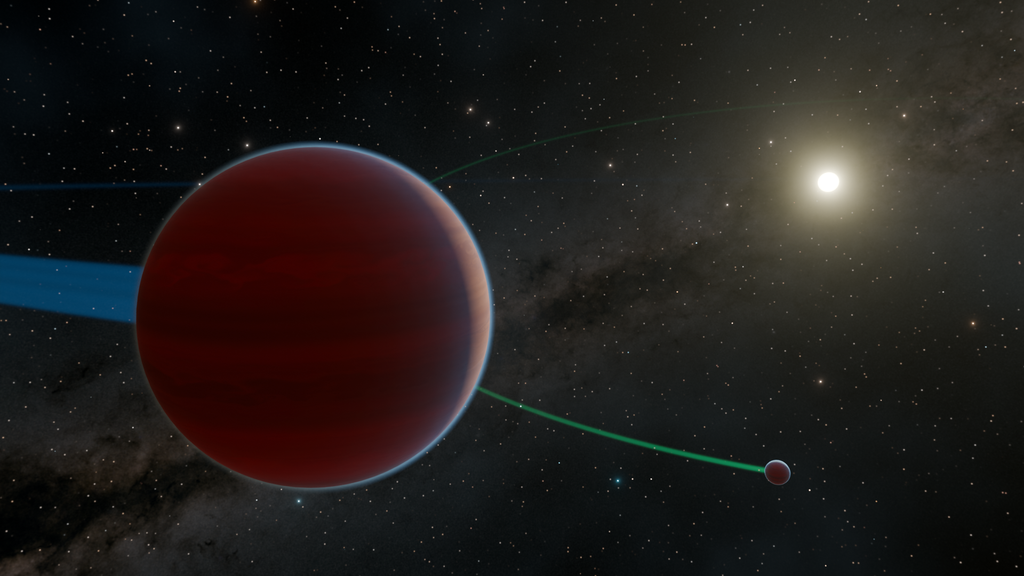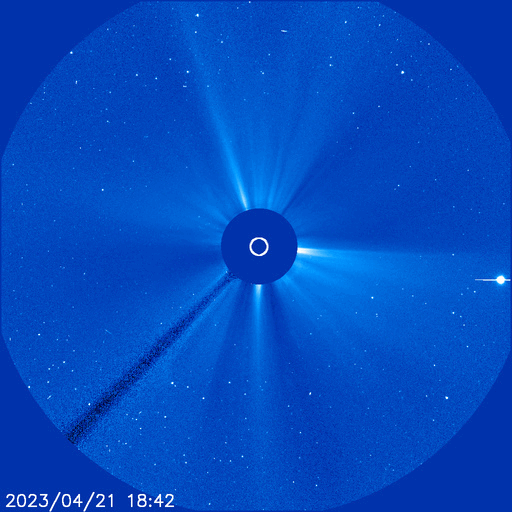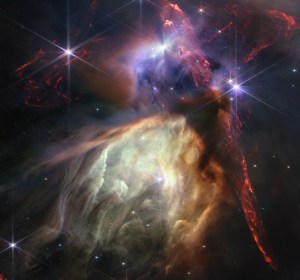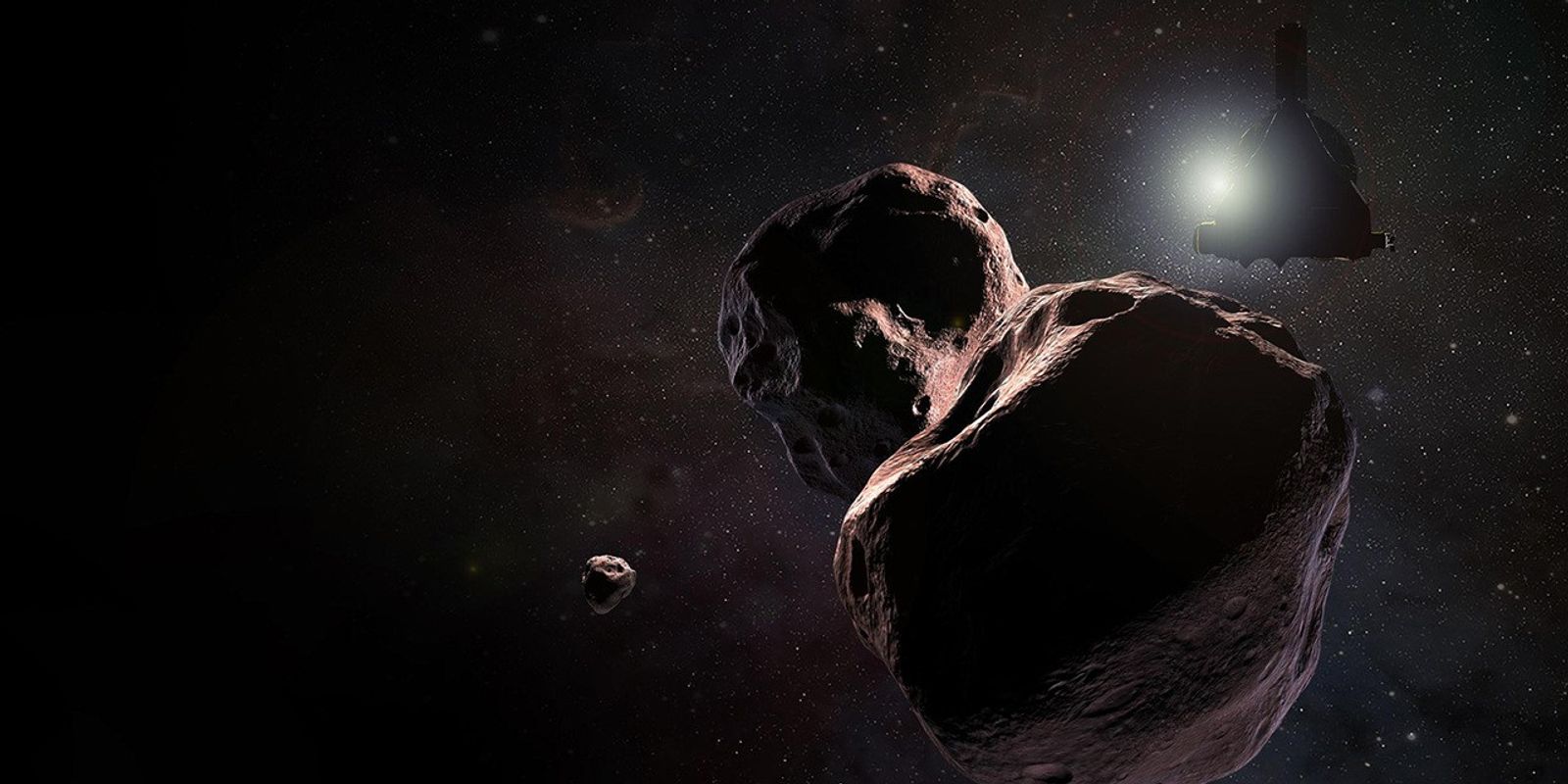Cassini Significant Event Report
For Week Ending 09/12/03
The most recent spacecraft telemetry was acquired from the Canberra tracking station on Wednesday, September 10. The Cassini spacecraft is in an excellent state of health and is operating normally. Information on the spacecraft's position and speed can be viewed on the "Present Position" web page.
On-board activities this week included a Composite InfraRed Spectrometer radiator test, reaction wheel assembly friction test, transition to and from reaction wheel control and thrusters in support of Trajectory Correction Maneuver (TCM) 19a, and execution of TCM19a.
TCM19a executed properly. A maneuver wrap-up meeting is scheduled for next week. Until then, the Spacecraft Operations Office has released some preliminary statistics: the burn began execution at 253T20:00:00 spacecraft event time, with a duration of 197.88 seconds and a delta V of 0.122 m/s.
A Sub-Sequence Generation Sequence Change Request approval meeting was held as part of the development process for the C40 background sequence. Merged Preliminary Sequence Integration and Validation integrated sequence products have been released for review.
At a scoping meeting held this week, project management approved a proposed plan for the C43 sequence. A few issues remain open, one of which is the need for 70 meter antenna coverage to support the Probe relay sequence demonstration and data playback in February of 2004. This is a highly contested time due to Mars Exploration Rover activities. The appropriate requests have been submitted to the DSN and the issue is being worked.
All teams and offices are currently working on presentations for the Operations Readiness Review to be held in October. System Engineering, Uplink Operations, Instrument Operations, and Navigation have presented drafts and are in the process of incorporating comments.
A delivery coordination meeting was held for the Assisted Load Format Tool version 9.2. The software has been approved.
A Software Requirements Certification Review delivery meeting for the Magnetospheric Imaging Instrument (MIMI) v7.0.0 flight software (FSW) build was held mid-August. The FSW was accepted for delivery to the project software library and approved for processing to uplink as part of C39 sequence activities. Approval of the FSW for operations was tentatively approved, with full approval to be given with successful closure of three action items. All have now been completed and the FSW build is fully approved for operations uplink. This FSW is scheduled to be sent to the spacecraft September 11.
Mission Assurance supported a JPL/Aerospace Corporation Risk Management Workshop this week. The group has been working to develop a coordinated Risk Management Process, including the creation of a "story book" of common threads and lessons learned. The products produced by this group will be presented at next spring's System Engineering and Risk Management Symposium, sponsored by the Aerospace Corporation.
The Hubble telescope has recently taken some excellent images of Saturn. To whet your appetite for what is coming next year, go to the following URLS:
http://space.com/scienceastronomy/hubble_saturn_030909.html
http://hubblesite.org/newscenter/archive/2003/23/
Additional information about Cassini-Huygens is online at http://saturn.jpl.nasa.gov.
Cassini will begin orbiting Saturn on July 1, 2004, and release its piggybacked Huygens probe about six months later for descent through the thick atmosphere of the moon Titan. Cassini-Huygens is a cooperative mission of NASA, the European Space Agency and the Italian Space Agency. JPL, a division of the California Institute of Technology in Pasadena, manages the mission for NASA's Office of Space Science, Washington, D.C.
Media Relations Office
Jet Propulsion Laboratory
California Institute of
Technology
National Aeronautics and Space
Administration
Pasadena, Calif. 91109.
Telephone (818) 354-5011






























